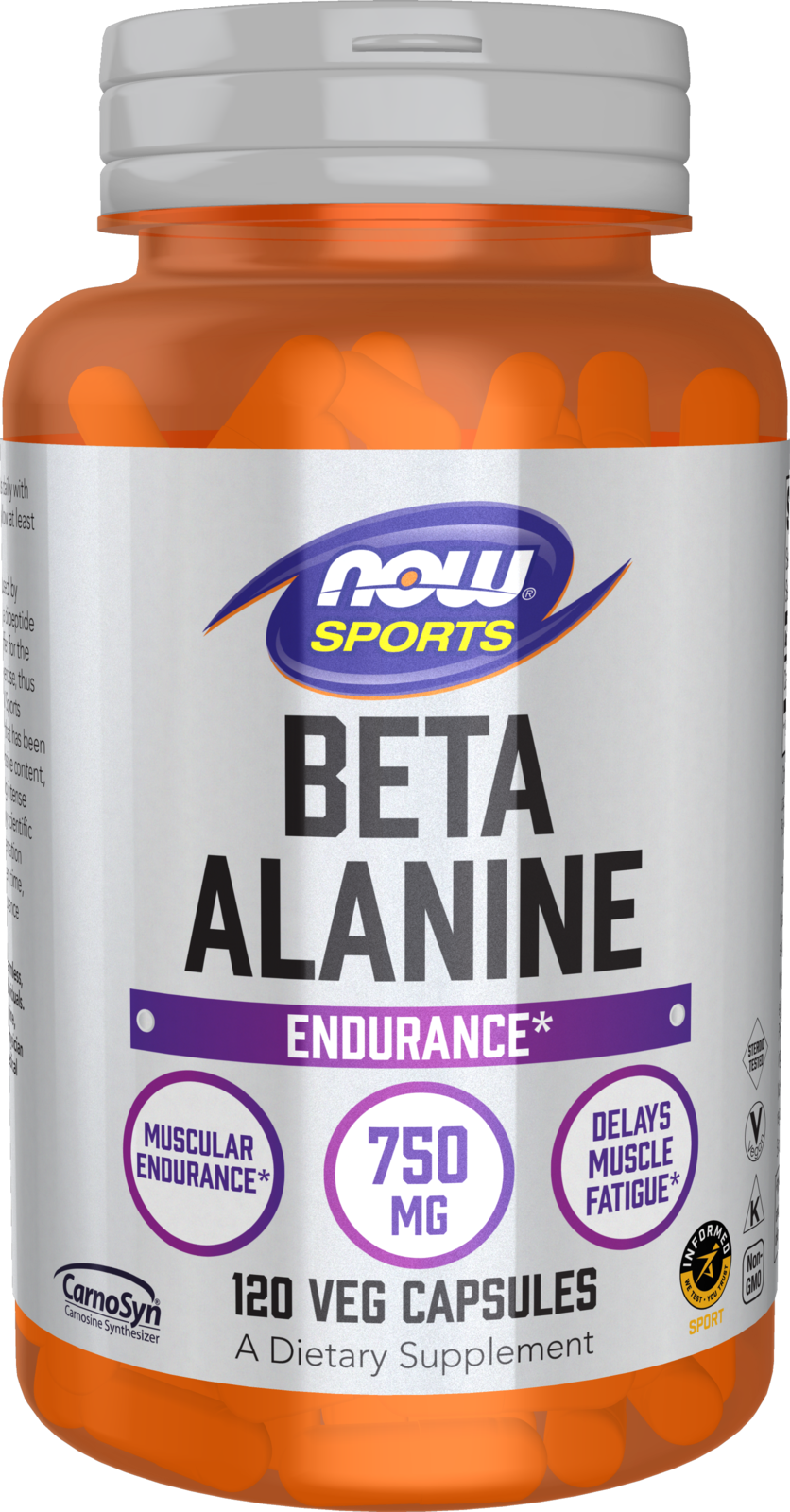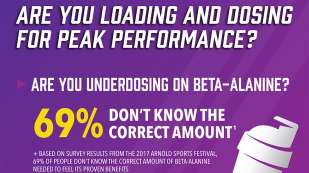25% off a $40+ order with coupon code:
FLOWERS†Scientifically Backed Beta Alanine
Beta Alanine Clinical Studies
NOW® Sports uses CarnoSyn®, a proprietary form of beta alanine that has been clinically tested.
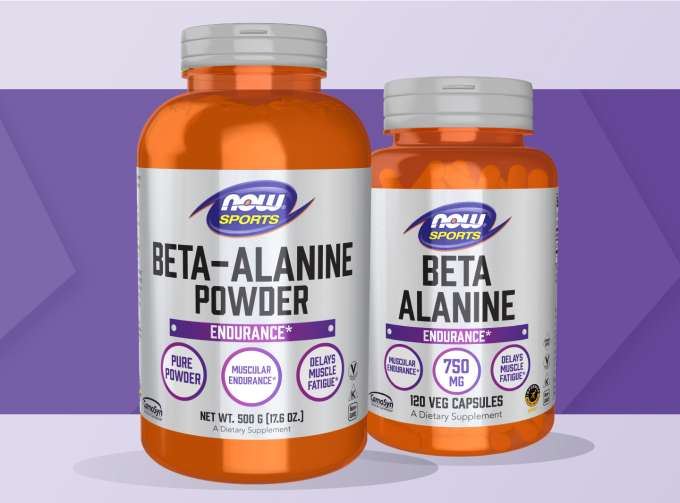



Cyclist Study
Double-blind, placebo-controlled; 21 healthy young male endurance cyclists (aged 18-30 years).
Results: The group that took beta alanine showed an 11.4% increase in peak power and a 5% increase in mean power output performances compared to placebo during the first sprint after the timed trial.*1
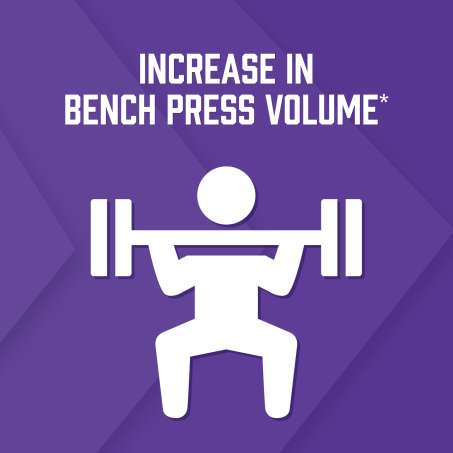

Bench Press and Resistance Exercise Study
Randomized, placebo-controlled; 26 male collegiate football players (aged 17-21 years).
Results: Bench press training volume was significantly higher in the beta alanine group compared to the placebo group during the first training session.* Also, a trend towards greater training volume was seen for all resistance exercises in the beta alanine group compared to the placebo group.* Feelings of fatigue were lower in the beta alanine group compared to placebo.*2


Time-to-Exhaustion Study
Randomized, double-blind, placebo-controlled parallel study; 22 women (aged 21-33 years).
Results: The beta alanine group increased ventilatory threshold by 13.9%, physical working capacity at fatigue threshold by 12.6% and time-to-exhaustion by 2.5% compared to baseline.* No changes occurred in the placebo group.*3


Muscle Carnosine Content in Track-and-Field Athletes
Double-blind, randomized, placebo-controlled trial; 15 male track-and-field athletes with a 400m time below 53 seconds.
Results: Beta alanine significantly increased carnosine content in the calf muscle by 47% in one section and by 37% in another section compared to the baseline.* In placebo the carnosine content in the calf muscle was either unchanged or increased to a less degree than the effect of beta alanine in the calf muscle compared to baseline.* Significant improvements were also seen in dynamic knee extension torque when comparing pre/post data.*4
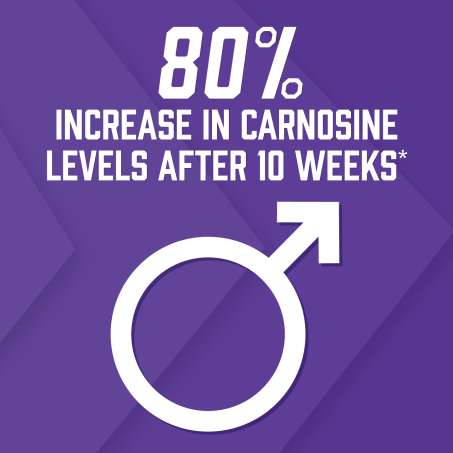
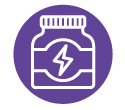
Muscle Carnosine Levels in Active Males
Randomized, double-blind, placebo-controlled trial; 24 physically active males (aged 22-36 years).
Results: Beta alanine supplementation significantly increased muscle carnosine level by 58.8% after 4 weeks and by 80.1% after 10 weeks compared to baseline.* Carnosine levels Increased equally in type 1 and 2 muscle fibers compared to no increase in placebo.* Beta alanine supplementation also increased total work done by 13% after 4 weeks and by 16.2% after 10 weeks compared to baseline.* No change occurred in the placebo group.*5
References:
- Van Thienen R, Van Proeyen K, Eynde BV, Puype J, Lefere T, Hespel P. [beta]-Alanine Improves Sprint Performance in Endurance Cycling. Medicine & Science in Sports & Exercise. 2009;41(4):898.
- Hoffman JR, Ratamess NA, Faigenbaum AD, Ross R, Kang J, Stout JR, et al. Short-duration [beta]-alanine supplementation increases training volume and reduces subjective feelings of fatigue in college football players. Nutrition Research. 2008;28(1):31-5.
- Stout J, Cramer J, Zoeller R, Torok D, Costa P, Hoffman J, et al. Effects of β-alanine supplementation on the onset of neuromuscular fatigue and ventilatory threshold in women. Amino acids. 2007;32(3):381-6.
- Derave W, Özdemir MS, Harris RC, Pottier A, Reyngoudt H, Koppo K, et al. β-Alanine supplementation augments muscle carnosine content and attenuates fatigue during repeated isokinetic contraction bouts in trained sprinters. Journal of Applied Physiology. 2007;103(5):1736-43.
- Hill C, Harris R, Kim H, Harris B, Sale C, Boobis L, et al. Influence of β-alanine supplementation on skeletal muscle carnosine concentrations and high intensity cycling capacity. Amino acids. 2007;32(2):225-33.
SALE
*These statements have not been evaluated by the Food and Drug Administration. This product is not intended to diagnose, treat, cure or prevent any disease.

